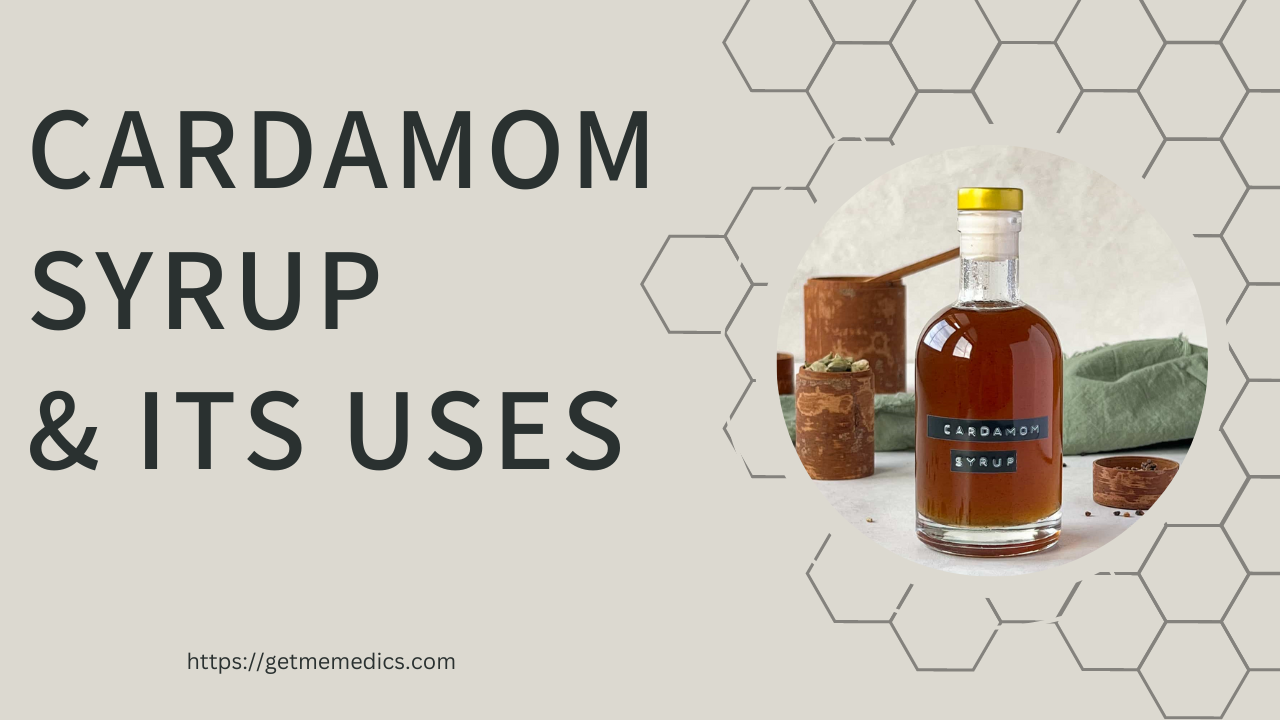Cardamom syrup is a natural and versatile remedy that has been used for centuries due to its various health benefits and delicious flavor. This article aims to provide you with an in-depth understanding of cardamom syrup, covering all aspects from its uses and composition to potential side effects and precautions.
What is Cardamom Syrup?
Cardamom syrup is a sweet and aromatic liquid extracted from the seeds of the Elettaria cardamomum plant, commonly known as green or true cardamom. It is a popular traditional remedy used in Ayurvedic and traditional medicine systems for its medicinal properties and culinary uses.
The Composition of Cardamom Syrup
Cardamom syrup’s potency comes from its rich composition of essential oils, phytochemicals, and active compounds. Some of the key components include:
- Terpenes: Limonene, terpinolene, myrcene.
- Esters: Methyl eugenol, linalyl acetate.
- Phenolic compounds: Elettarin, eugenol.
- Flavonoids: Quercetin, luteolin.
These natural constituents contribute to the syrup’s distinctive flavor and therapeutic effects.
Uses of Cardamom Syrup
Cardamom syrup boasts a wide range of uses, making it a versatile addition to your wellness regimen and culinary adventures. Some common applications include:
- Digestive Aid: Cardamom syrup can help alleviate indigestion, bloating, and gas due to its carminative properties.
- Respiratory Support: The syrup’s expectorant properties may relieve coughs and congestion, promoting respiratory health.
- Mood Enhancer: Its natural aroma and soothing properties can help reduce stress and anxiety.
- Anti-Inflammatory Agent: Cardamom syrup’s anti-inflammatory effects may help in managing inflammation-related conditions.
- Flavor Enhancer: Adding cardamom syrup to desserts, beverages, and dishes imparts a delightful taste and aroma.
You may also look for

Precautions and Potential Side Effects
While cardamom syrup is generally safe for most people when consumed in moderate amounts, it’s essential to be aware of potential side effects and take necessary precautions:
- Allergic Reactions: Some individuals may be allergic to cardamom, leading to allergic reactions like skin rashes or difficulty breathing. Discontinue use if such reactions occur.
- Interaction with Medications: Cardamom syrup may interact with certain medications, so consult with a healthcare professional if you’re taking any prescription drugs.
- Pregnancy and Breastfeeding: Pregnant or breastfeeding women should avoid excessive consumption of cardamom syrup, as its effects on these conditions are not well-studied.
How to Take Cardamom Syrup
Cardamom syrup can be taken in various ways, depending on the purpose:
- Internal Use: Mix a teaspoon of cardamom syrup in a glass of warm water and drink it to aid digestion or promote relaxation.
- Topical Application: Dilute the syrup with a carrier oil and apply it to the chest to relieve respiratory congestion.
- Culinary Uses: Add a few drops of cardamom syrup to tea, coffee, smoothies, or desserts to enhance the flavor.
Dosage Instructions
The appropriate dosage of cardamom syrup may vary based on individual health conditions and intended use. As a general guideline:
- Adults: 1 to 2 teaspoons of cardamom syrup per day.
- Children: Half to one teaspoon of cardamom syrup per day.
It’s best to start with a small dose and gradually increase it if needed, while monitoring any adverse reactions.
Potential Risks and Warnings
While cardamom syrup offers numerous health benefits, it’s essential to be aware of potential risks and heed certain warnings:
- Diabetes: Cardamom syrup contains natural sugars, so individuals with diabetes should consume it in moderation and monitor their blood sugar levels.
- Gastrointestinal Sensitivity: Some individuals may experience mild gastrointestinal discomfort when consuming cardamom syrup. Reduce the dosage if such issues arise.
Interactions with Medications
Cardamom syrup may interact with certain medications, affecting their efficacy or causing adverse effects. Inform your healthcare provider about your cardamom syrup consumption to avoid any potential interactions.
Cardamom Syrup Alternatives
If you’re unable to consume cardamom syrup or want to explore other options, several alternatives offer similar benefits. These include:
- Cardamom Tea: Brew crushed cardamom pods in hot water for a flavorful tea.
- Cardamom Essential Oil: Dilute cardamom essential oil and use it for aromatherapy or topical applications.
- Cardamom Capsules: Opt for cardamom supplements in capsule form for precise dosing.
Personal Experience with Cardamom Syrup
As an avid enthusiast of natural remedies, I have personally experienced the benefits of cardamom syrup. Its gentle and soothing effects on digestion and mood have made it a staple in my daily routine. However, it’s crucial to use it responsibly and consult with a healthcare professional if you have any underlying health conditions.
Conclusion
In conclusion, cardamom syrup’s rich history and diverse applications have made it a beloved remedy and culinary delight worldwide. Understanding its uses, composition, potential side effects, and precautions empowers you to harness its benefits effectively and responsibly. Whether for aromatic flavoring or holistic healing, cardamom syrup offers an enchanting journey into the realm of natural remedies.
FAQs
Q: Can cardamom syrup be used for culinary purposes only?
No, cardamom syrup is not limited to culinary uses alone. It has various medicinal properties, making it a versatile natural remedy for digestive issues, respiratory problems, and stress relief.
Q: Is cardamom syrup safe for children?
Yes, cardamom syrup is generally safe for children when given in appropriate dosages. However, it’s best to consult with a pediatrician before introducing it to their diet.
Q: Can pregnant women consume cardamom syrup?
Pregnant women should exercise caution and limit their cardamom syrup consumption. It’s advisable to consult with a healthcare provider before use.
Q: Are there any side effects of cardamom syrup?
Cardamom syrup is safe for most people when taken in moderation. However, some individuals may experience mild gastrointestinal discomfort or allergic reactions.
Q: Can cardamom syrup interact with blood pressure medications?
Yes, cardamom syrup may interact with certain medications, including blood pressure drugs. It’s essential to inform your doctor about any natural remedies you are using.
Q: How can I store cardamom syrup?
To maintain its potency, store cardamom syrup in a cool, dry place away from direct sunlight. Avoid exposure to extreme temperatures.
